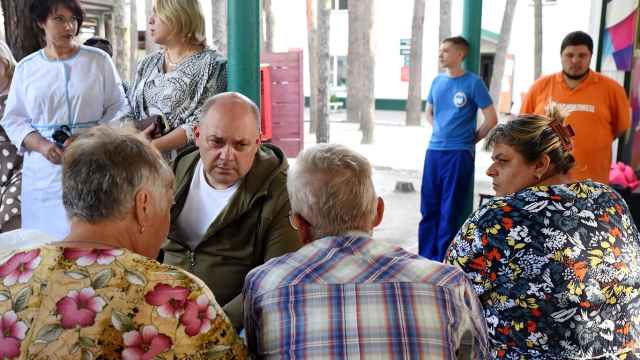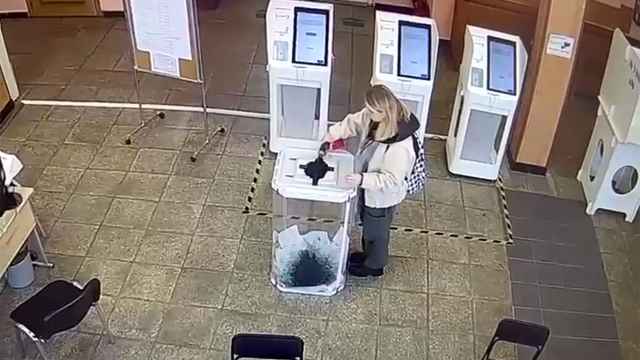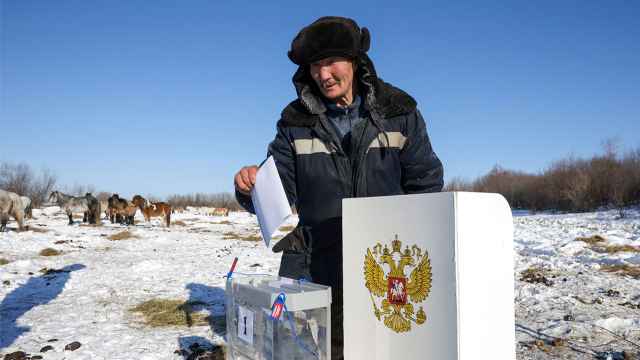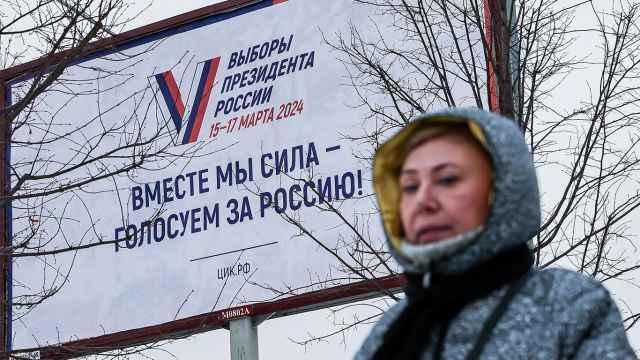Russian authorities are taking steps to hinder voting by its citizens living abroad in the upcoming presidential election, in what some observers call a move to restrict votes cast by anti-war emigres.
Those hoping to vote from outside the country will face a reduction in polling places and no option to vote online — while political dissidents run the risk of interrogation or detention by entering Russian embassies to vote.
“They are generally pushing away those who left Russia,” Artyom Waschenkow, a Russian elections expert based in Germany, told The Moscow Times.
Up to 11 million Russians live outside the country, according to official statistics. More than 400,000 of them voted in the 2018 presidential election, the Central Election Commission (CEC) said at the time, in what it claimed was a record.
These citizens, along with the hundreds of thousands of Russians who have fled abroad since the February 2022 invasion of Ukraine, make up a significant portion of Russia’s electorate.
Any Russian living abroad who wants to vote must do so at an official polling place located inside a Russian embassy or consulate.
Yet several Russian diplomatic missions in Europe have been shuttered amid the diplomatic fallout from the invasion.
The number of voting stations abroad will be further reduced because of “security risks,” Foreign Ministry spokeswoman Maria Zakharova said last week.
Overall, 300 polling stations will be opened for the March vote — 100 fewer than during the 2018 presidential election.
While the CEC has admitted that reducing the number of polling stations will jeopardize the rights of Russian citizens living abroad, it has also tried to justify the scaling back by pointing the finger at so-called “unfriendly” — or Western — countries.
“[CEC chief Ella] Pamfilova said herself that they’ll reduce the number of polling stations in embassies located in ‘unfriendly’ countries. Meaning that if there is more than one diplomatic mission… only one will be available for voting,” Waschenkow said.
He added that Russia will likely open additional polling stations in places like the breakaway Georgian and Moldovan statelets of Abkhazia and Transnistria, which host a Russian military presence and are not recognized by the international community.
“Independent election observation is nearly impossible there,” he said.
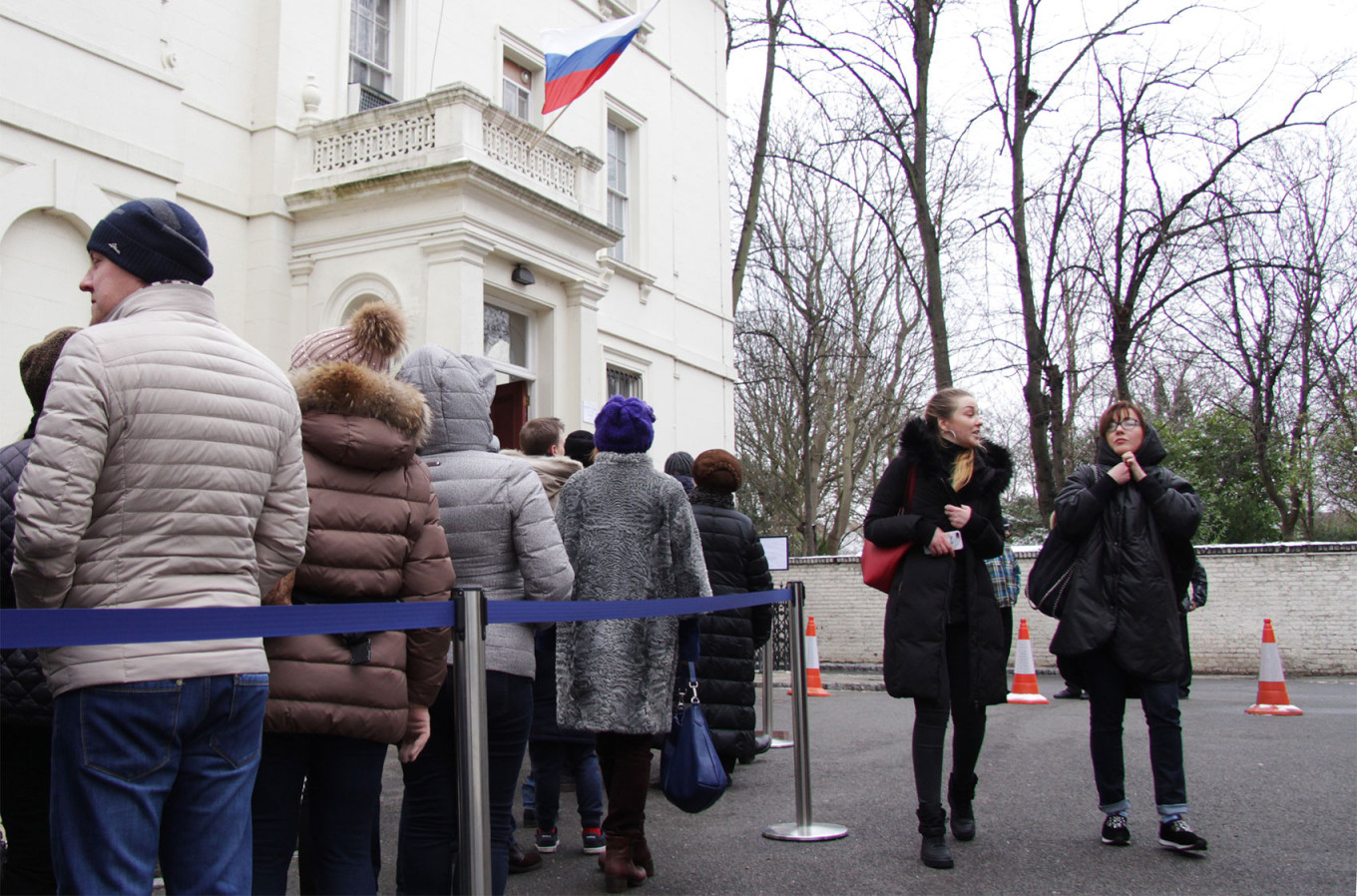
Nor can voters based abroad use Russia’s remote electronic voting system, which will only be accessible inside Russia due to what the CEC called security risks stemming from its technological limitations.
Despite the alleged risks of remote electronic voting, the CEC gave the green light for the technology — which has been criticized for enabling widespread falsifications — to be used in the upcoming election.
Waschenkow said the CEC is introducing new verification requirements for Gosuslugi, the state and municipal services platform used for electronic voting, that do not allow for voting from abroad.
“Sometimes it doesn’t work without a VPN. It also requires verification with a Russian phone number. Sure, they might be worried about security, but it all looks like another way to prevent voting from abroad.”
Many exiled opposition activists and independent journalists are reluctant to visit Russian embassies, as they are formally considered to be part of Russian territory and thus subject to its laws.
“I personally have a ‘foreign agent’ status and a criminal case was opened against me,” Waschenkow said. “I'm a wanted man. But I still have my right to vote and I will use it.”
“There are known ‘criminals’ like [Mikhail] Khodorkovsky who went and voted in embassies without any problems. Yes, there might be a threat ... but the risks are still low.”
Activist Emil, who is living in political asylum in Europe and asked not to disclose his surname due to safety concerns, said that, for him, it is not so easy to take the potential risks lightly.
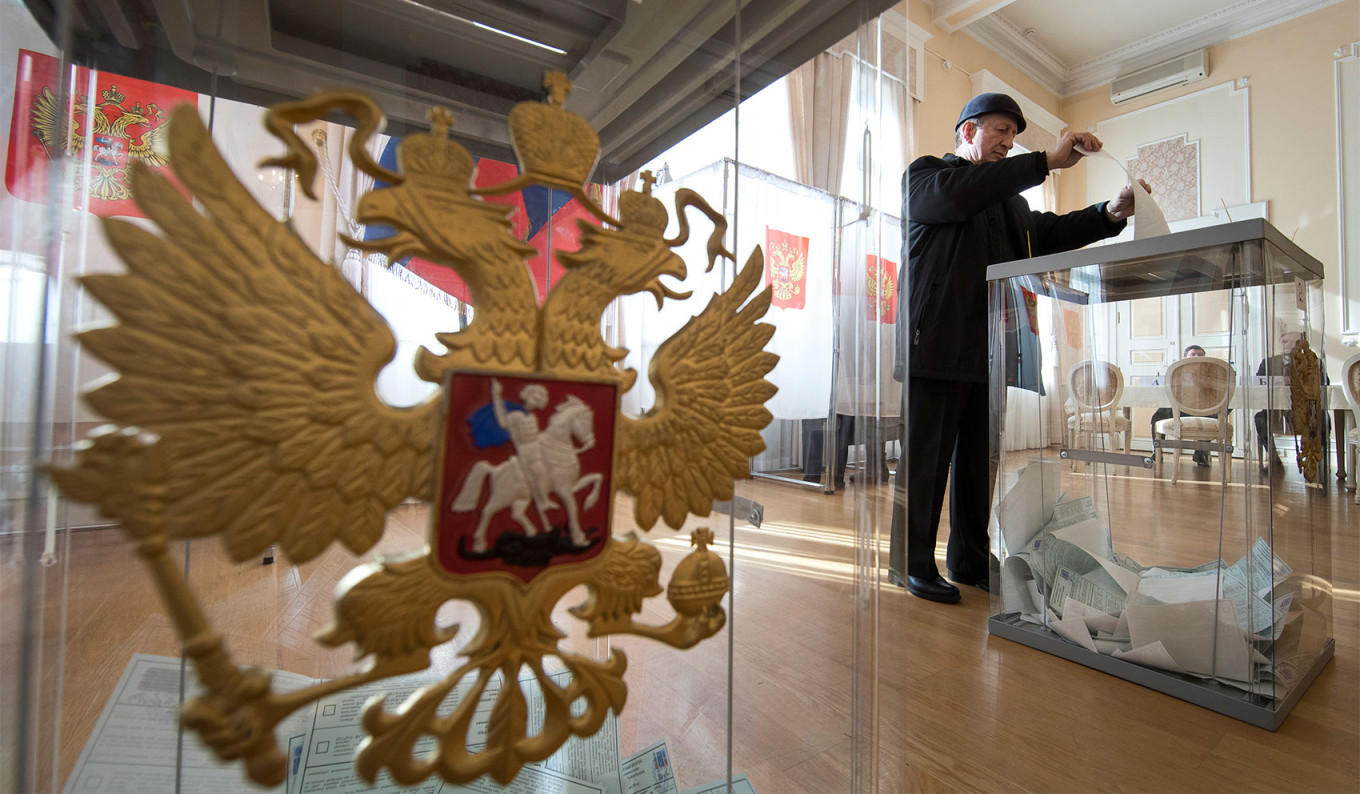
“The problem is that people like me, who left Russia illegally, are technically still in Russia. As soon as we visit an embassy, they’ll start asking questions,” he said.
“Maybe they can’t arrest and extradite me. But if there is a criminal case against me, which I might be notified about when entering an embassy … they can put me in front of a camera and make me read [a confession], and then make me promise to come back to Russia to face trial.”
Emil said he also worries that showing up at a polling station could lead to persecution and harassment of other exiled activists, as well as their relatives back home.
“Or they will start digging through our activities abroad, which are also subject to prosecution. Anyhow, this will create problems for our families back there, and this is a risk I’m not ready to handle.”
The Russian Embassy in Lithuania, a country where a large number of opposition activists are living in exile, declined to comment for this article.
Other exiled activists said they plan to vote against Putin no matter the obstacles thrown in their way.
“Our resistance takes on meaning when it's written down on paper,” Timofey, a political activist who moved to Lithuania shortly after the start of the war, told The Moscow Times.
“Hell, I want Putin to see the real election results for himself and know that I consider him the worst candidate on the ballot.”
A Message from The Moscow Times:
Dear readers,
We are facing unprecedented challenges. Russia's Prosecutor General's Office has designated The Moscow Times as an "undesirable" organization, criminalizing our work and putting our staff at risk of prosecution. This follows our earlier unjust labeling as a "foreign agent."
These actions are direct attempts to silence independent journalism in Russia. The authorities claim our work "discredits the decisions of the Russian leadership." We see things differently: we strive to provide accurate, unbiased reporting on Russia.
We, the journalists of The Moscow Times, refuse to be silenced. But to continue our work, we need your help.
Your support, no matter how small, makes a world of difference. If you can, please support us monthly starting from just $2. It's quick to set up, and every contribution makes a significant impact.
By supporting The Moscow Times, you're defending open, independent journalism in the face of repression. Thank you for standing with us.
Remind me later.



